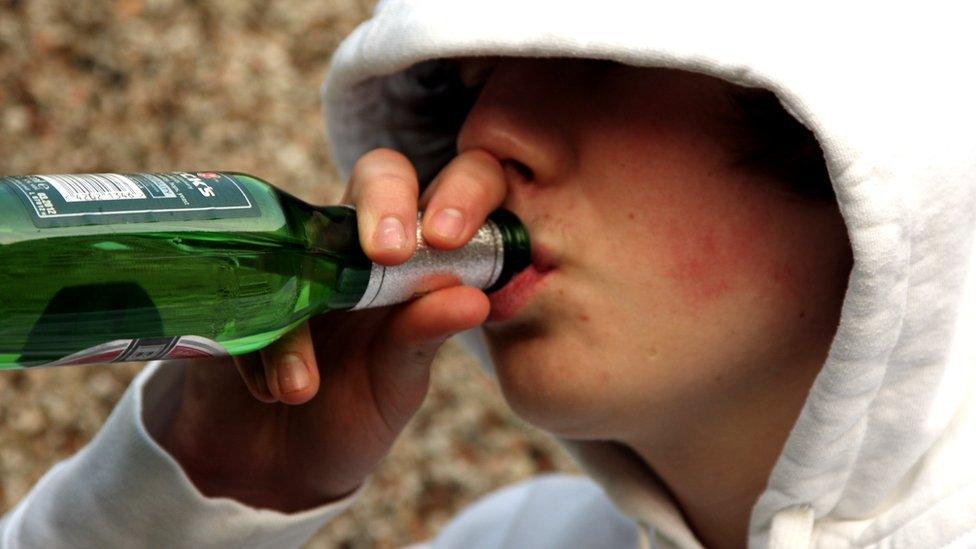Men with alcohol problems 'six times more likely to abuse partner'
- Published

Men who are dependent on alcohol or drugs are six or seven times more likely to be involved in domestic abuse against women than others, according to an extensive new study.
The research, published in the online journal PLOS-Medicine, external, analysed hundreds of thousands of medical records and police data from Sweden over a 16-year period.
It also found an increased risk of partner violence among men with mental illnesses and behavioural disorders, though it was not as marked as in the group with a drink or drugs problems.
University of Oxford Professor Seena Fazel, who led the study, said the findings suggest domestic violence could be reduced with improvements in drug and alcohol treatment services and better monitoring of offenders.
"Treatment programmes for perpetrators have not been very effective to date - probably reflecting lack of high-quality evidence on risk factors that can be targeted," Prof Fazel told BBC News.
"Prevention and intervention programmes should prioritise substance misuse and perpetrators should be assessed for substance misuse to prevent recidivism," he said.
The study, which also involved experts from the US, Sweden and King's College, London, tracked 140,000 men who had been clinically diagnosed with a drink or drug problem between January 1998 and December 2013.
Researchers explored how many had later been arrested for threatening, attacking or sexually assaulting their wives, girlfriends or female ex-partners.
They found that 1.7% of men dependant on alcohol had subsequently been arrested for such offences - six times as many as those in a sample of the overall male population with a similar age profile.
For men with a drug problem, 2.1% had been arrested, which was seven times higher than average.
While undoubtedly there is some link between alcohol and drugs and domestic abuse, this research should be treated with some caution, said Dame Vera Baird, victims' commissioner for England and Wales.
She said: "Many perpetrators who commit domestic violence while drunk will also be violent and controlling while sober.
"And many perpetrators of domestic violence and coercive control do not have a drink or drug problem, and therefore it would be a mistake to divert resources from domestic violence perpetrator programmes to tackling drink and drugs misuse."
Link to mental health problems
The researchers also carried out "sibling comparisons" to check whether the increased risk of domestic abuse among those with alcohol and drug problems could be explained by other factors, such as family background and genetics.
They found there was still a heightened risk among men dependant on drink or drugs - but it was slightly less pronounced when compared with their brothers who did not have substance misuse problems.
"Alcohol and drug use disorders decrease an individual's inhibition, which in turn can lead to the use of violence to solve conflicts in intimate relationships," the research says.

It also found a link between some mental health problems and domestic abuse, with those suffering from Attention Deficit Hyperactivity Disorder (ADHD), personality disorders and clinical depression among those more likely to face arrest.
"People with mental disorders are also likely to use alcohol and drugs as coping strategies to deal with difficult symptoms associated with their illnesses," the study says.
"Therefore, alcohol and drug use disorders could be underlying mechanisms linking other mental disorders to later [domestic violence] perpetration."
- Published13 September 2019

- Published19 February 2019

- Published9 December 2019
